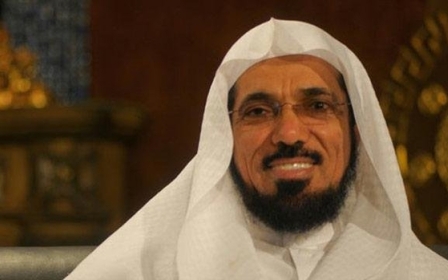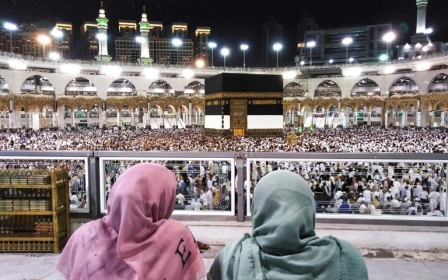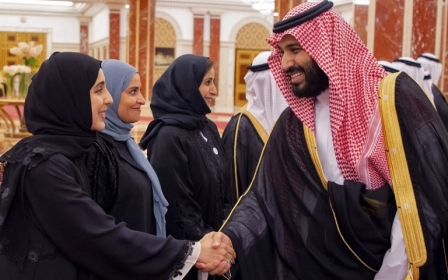Son of detained cleric denounces Saudi crackdown on independent voices

The son of detained Saudi scholar Salman Odah has told Middle East Eye his father was targeted for holding “independent” views and for refusing to become “a mouthpiece of the government”.
Salman Odah is a prominent Saudi Sunni cleric who was detained in September 2017 as part of a crackdown led by the then recently appointed crown prince, Mohammed bin Salman. The crackdown, largely perceived as a campaign to crush potential dissent, has targeted independent clerics, businessmen, feminists and human rights activists.
The cleric's son Abdullah Odah, who spoke to Middle East Eye on Wednesday, is a senior fellow at the Center for Muslim-Christian Understanding at Georgetown University in the United States.
The Saudi public prosecutor brought 37 charges against Salman Odah on Tuesday and recommended a death penalty against him. Two other clerics received the same sentence later this week.
“There [are many] absurd charges,” Abdullah Odah said in a video interview with MEE. One of the charges is receiving messages that “incite sedition” against the rulers, and another is “not praying enough for the ruler”.
Abdullah said that his father was only informed of the charges during Tuesday’s trial, held “secretly” at the Specialised Criminal Court (SCC) in the capital Riyadh.
The SCC was established in 2008 to try terrorism cases. But rights groups have repeatedly called for its abolition, saying it is increasingly used to prosecute peaceful activists, and that its proceedings usually violate the right to fair trials.
The same court has been used in trials against activists and clerics belonging to the Shia minority who were later executed in 2017.
However, no Sunni activists have been executed since the appointment of Mohammed bin Salman as crown prince.
The government is pursuing its own extremist, intolerant agenda under the absurd guise of 'moderate Islam'
- Sarah Leah Whitson, HRW
Executions in Saudi Arabia, most commonly beheadings, take place following a decision by the king, in this case Salman bin Abdulaziz Al Saud.
“The Saudi prosecutor’s call for the death penalty against three well-known clerics is part and parcel of the government’s aggressive campaign to use its broadly worded laws to silence its own citizens, in particular any who dare to push for reforms,” said Sarah Leah Whitson, the executive director of the Middle East and North Africa division at Human Rights Watch.
“These particular cases highlight how the government is pursuing its own extremist, intolerant agenda under the absurd guise of ‘moderate Islam’,” she said in emailed comments to MEE.
A UN report released in June stated that the Gulf kingdom was systematically using its counterterrorism laws to suppress human rights defenders.
“Those who peacefully exercise their right to freedom of expression are systematically persecuted in Saudi Arabia,” the report said. “Many languish in prison for years. Others have been executed after blatant miscarriages of justice.”
Abdullah condemned what he described as “a policy of embracing radical clerics and excluding moderates” adopted by the current Saudi rulers.
He cited the fact that his father embraced “democratic mechanisms and civil liberties” in contrast with radical scholars like Saleh al-Fawzan, who is considered “a father” by Mohammed bin Salman.
Fawzan is a member of the Council of Senior Scholars exclusively tasked with issuing Islamic fatwas in the kingdom.
“For the past 20 years, my father has spearheaded a campaign against extremism and terrorism, while Fawzan issued fatwas forbidding women from riding motorbikes, saying it is ‘an imitation of men’, and labelled all non-Sunnis as infidels.”
In 2010, King Abdullah bin Abdulaziz issued a decree declaring the state-sponsored Council of Senior Scholars the sole body permitted to issue Islamic fatwas.
Targeting moderate clerics, Abdullah said, “would mean nothing but allowing extremism to flourish”.
This article is available in French on Middle East Eye French edition.
Stay informed with MEE's newsletters
Sign up to get the latest alerts, insights and analysis, starting with Turkey Unpacked
Middle East Eye delivers independent and unrivalled coverage and analysis of the Middle East, North Africa and beyond. To learn more about republishing this content and the associated fees, please fill out this form. More about MEE can be found here.




